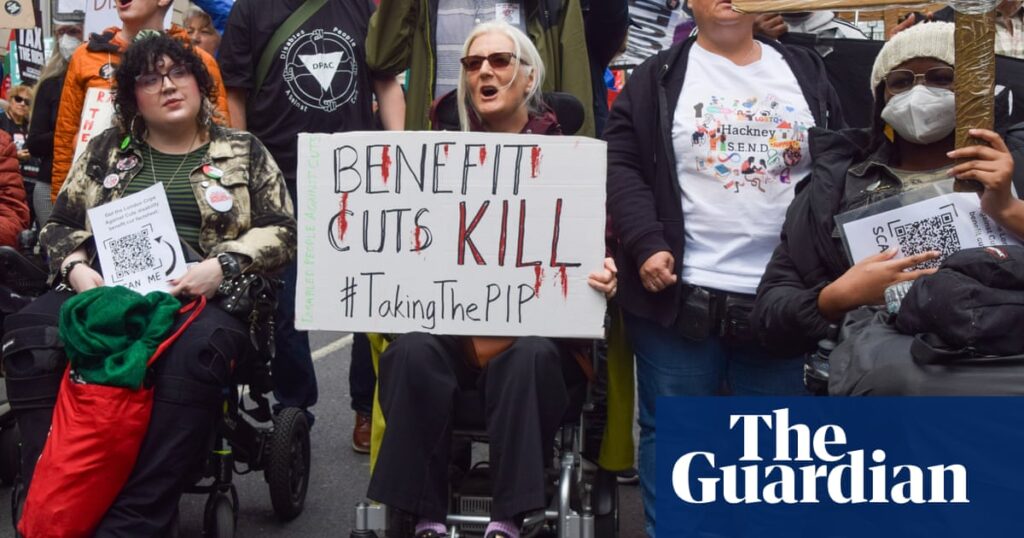The extra cost of being disabled is on course to rise by almost 12% to £14,688 in five years, according to a new estimate published on the eve of a controversial vote to restrict welfare payments for new claimants.
A threatened rebellion by more than 120 Labour MPs forced the government into a last-minute climbdown on its welfare bill, by exempting claimants to planned cuts in personal independence payments (Pip), England’s main disability payment.
But about 50 of those rebels are still known to be concerned that this concession could create a two-tier system where existing and new claimants are treated differently.
The new figures, produced by the disability equality charity Scope, will fuel fears of a growing disparity between these two sets of claimants as the cost of living rises. Its annual disability price tag report estimates that the extra cost facing disabled people currently stands at £1,095 per month, up from last year’s price tag of £1,010.
Based on the Family Resources Survey and forecasts from the Office for Budget Responsibility, the report estimates this monthly cost will climb to £1,224 by the financial year 2029-30. It means disabled people will be facing an effective annual surcharge of almost £15,000 by the end of the decade to live at the same standard as non-disabled people.
The figures factor in the extra cost disabled people face, including higher electricity bills to power medical equipment or extra heating bills associated with health conditions affected by the cold.
Scope points out that benefits cover less than half of these extra costs. With benefits the monthly shortfall is currently £630 and is set to rise to £704 in five years, the report estimates.
James Taylor, the executive director of strategy at Scope, said the figures showed that government concessions on Pip must go further. He said: “Life costs an enormous amount more when you’re disabled. Our latest analysis finds the price tag of disability is now £1,095 a month. A figure only set to increase in the coming years unless action is taken.
“The concessions put forward by government will just create a two-tier system, where huge numbers of disabled people face the disability price tag with little or no support from Pip. The government must change course on these catastrophic cuts now, and properly co-produce with disabled people on how to reform our welfare system.”
The government’s original package, first presented in March, included restrictions on eligibility for Pip payments, as well as cutting the health-related element of universal credit (UC). While all of the universal credit and personal independence payment bill applies to England and Wales, only the UC changes apply to Scotland. The bill includes equivalent provisions to legislate for Northern Ireland.
after newsletter promotion
A government spokesperson said: “We’re delivering one of the biggest packages of welfare reforms in a generation – including scrapping the work capability assessment, rebalancing universal credit and investing in tailored employment support.
“Protecting people is a principle we will never compromise on, which is why we’re delivering long-lasting and meaningful change that puts the welfare system on sustainable footing so the safety net will always be there for those who need it.
“We’re restoring trust and fairness in the system, ensuring existing Pip claimants will be able to keep their award and putting the voice of sick or disabled people at the heart of our plans, whilst ramping up support to help them into work.”


